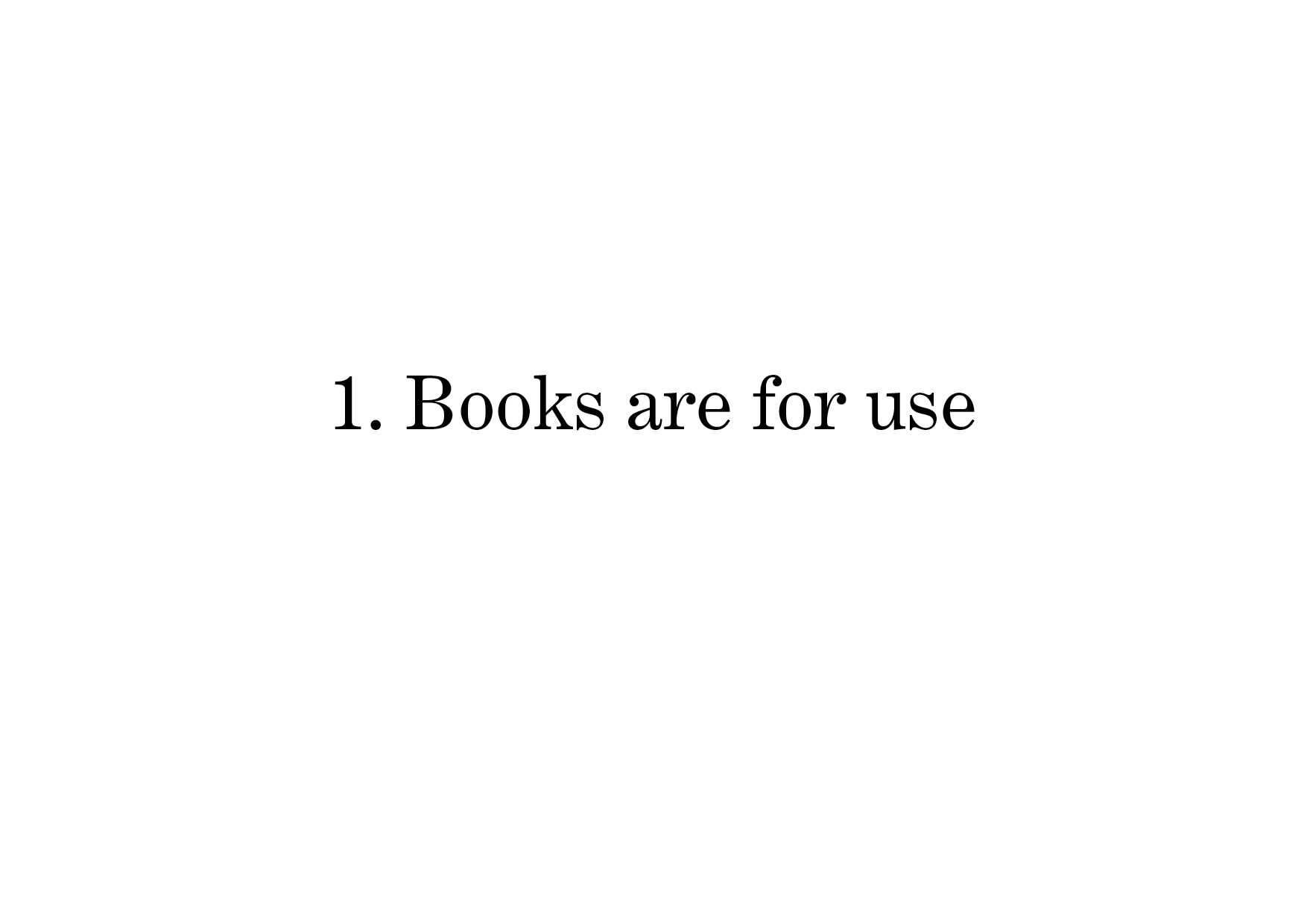diversifying through use

see also bootlegging, being kind to the reader, multiplying form, republishing
Publications acquire difference through reproduction; sometimes intentionally, always circumstantially. A printed book always ends up in the hands of at least one reader. It is transported, pages are dog-eared and annotated, time weathers the paper and cracks the spine. Multiply this by many readers, and each printed copy starts to accumulate its own traces, losing resemblance to the rest of the edition and acquiring its own particular countenance and provenance through use.
Image: The first law of S. R. R. Rangathan’s 5 Laws of Library Science, 1931
